NIO - the Chinese electric car company known as the "Tesla killer" - must burn more money to compete in the world's largest electric car market.
NIO was dubbed a “Tesla killer” when it launched an SUV in 2017 with a sleek design, large touchscreen and voice control features, but it cost half as much as Tesla’s Model X. NIO is one of China’s most lauded electric vehicle startups, but it is also an example of the challenges facing many automakers in a price war in the world’s largest electric vehicle market.
NIO’s sales have been plunging in recent months, forcing it to cut prices, reduce investment and burn more cash. This month, CEO William Li said NIO would have to be more careful about managing liquidity risk as weak sales over the past two weeks have strained cash flow.
Last week, NIO said a company backed by the Abu Dhabi government would invest $740 million. Li predicted sales would rebound this month, helped by the launch of a new SUV.
NIO has been slow to catch up with other automakers in the price war, and its recent moves show how competition is affecting automakers’ profits and changing supply chains.
Some startups have even been forced out of the game after burning through cash in the crowded Chinese market, where electric vehicle sales have slowed this year as consumption has weakened and Chinese authorities have stopped subsidizing buyers.
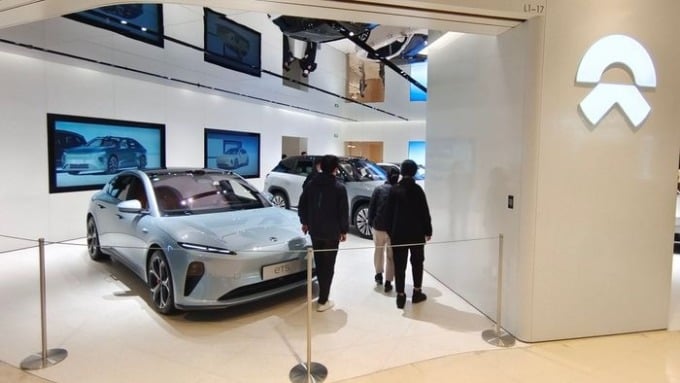
NIO electric car models on display. Photo: CFOTO
WM Motor had to stop most of its production, lay off employees and close many stores at the beginning of the year because it ran out of money and was in debt. In May, Letin Auto – famous for its $4,000 electric hatchback – also filed for bankruptcy because it could not raise new capital.
XPeng, another high-profile Chinese startup listed in the US, has also seen sales decline since September, despite cutting prices by more than 10% since the start of the year. Compared to the same period last year, XPeng is now selling 40% fewer cars. The company also has little time to turn things around, with cash running low and rivals catching up on technology, analysts at CMB International said.
Once darlings of investors, global electric-vehicle makers are struggling with low liquidity, operational issues and fierce competition. U.S. companies like Rivian Automotive and Lucid Group are also facing tough times as their cash reserves shrink.
Sales growth for electric and gasoline-electric hybrid vehicles in China has slowed in recent quarters. Two years ago, sales were in the triple digits. Sales of these vehicles rose just 41% in the first five months of this year, according to the China Passenger Car Association.
“Not everyone can survive in this market,” said Joel Ying, an auto analyst at Nomura. Startups are more vulnerable than established automakers, because established automakers still rely on the golden goose that is gasoline cars, Ying explained.
The Wall Street Journal reported a few days ago that Beijing is drafting a stimulus package to revive the economy and consumer spending. Last week, China’s Ministry of Finance also extended tax exemptions for electric and hybrid vehicles until the end of 2025.
For foreign automakers, the Chinese market is even more challenging. The likes of Ford Motor have failed to make the jump into electric vehicles in China. Volkswagen, which dominates the gasoline-powered car market and sells a lot of electric vehicles in other markets, has yet to make the top 10 in China.
Tesla is still the number 2 name in this electric car market. They sold more than 200,000 cars to Chinese people in the first 5 months of this year.
The Chinese automaker BYD, backed by billionaire investor Warren Buffett, has the largest market share. BYD sold 900,000 vehicles (including hybrids) in the first five months of the year. Li Auto, which makes expensive hybrids, also sold more than 100,000 in the same period, emerging as one of the strongest players in the market.
Dozens of Chinese automakers have slashed prices since the start of the year. Dealers have also offered incentives to stimulate demand. In January, Tesla slashed prices in China. Local rivals, such as Xpeng and BYD, quickly followed suit.
NIO, which had not previously been involved in a price war, delivered 6,000 vehicles in April and May, down from more than 10,000 in previous months. Analysts say NIO’s problems have been compounded by its slow rollout of new models to replace older models that have lost appeal to buyers.
The sales slump is weighing on the company’s profitability. New-vehicle profit margins fell to 5% in the first quarter, down from 18% a year earlier. The company’s cash and short-term liquidity also fell by a third from a year ago to $5 billion at the end of March. NIO’s debt now stands at $2 billion.
NIO’s CEO said this month that it doesn’t expect to break even until at least the end of 2024, a year later than previously forecast. It also delayed capital expenditures and some other research and development (R&D) activities.
Earlier this month, NIO slashed prices on all its vehicles in China by $4,200, meaning it would stop offering free battery swaps—a key selling point for NIO. The startup had previously allowed buyers to buy cars without batteries (one of the most expensive components in an electric vehicle) and swap them for free in just a few minutes at its stations.
For now, new buyers will have to pay for the battery swap. NIO also plans to add 1,000 battery swap stations in China this year, bringing the total to 2,400. But the company says it needs more users to make the service profitable.
Tu Le, director of research firm Sino Auto Insights, said the price cuts could temporarily boost sales. However, NIO will have to change its product and pricing strategies. In May, NIO launched the ES6 SUV, which Morgan Stanley said helped increase traffic to NIO stores.
Ha Thu (according to WSJ)
Source link






![[Photo] National conference to disseminate and implement Resolution No. 66-NQ/TW and Resolution No. 68-NQ/TW of the Politburo](https://vphoto.vietnam.vn/thumb/1200x675/vietnam/resource/IMAGE/2025/5/18/adf666b9303a4213998b395b05234b6a)
![[Photo] General Secretary To Lam visits exhibition of achievements in private economic development](https://vphoto.vietnam.vn/thumb/1200x675/vietnam/resource/IMAGE/2025/5/18/1809dc545f214a86911fe2d2d0fde2e8)
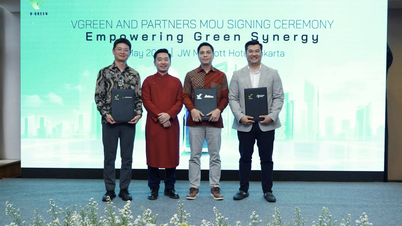

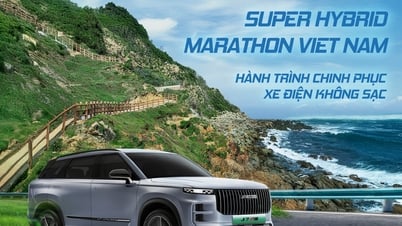


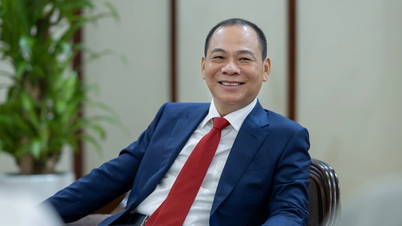

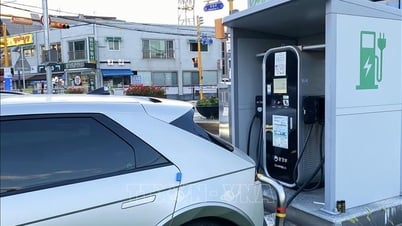

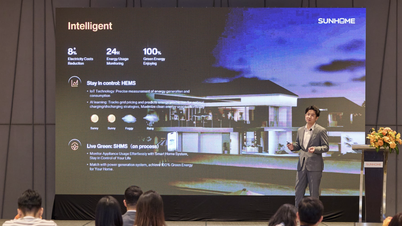
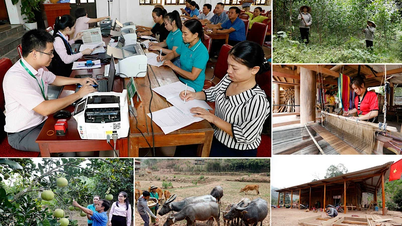

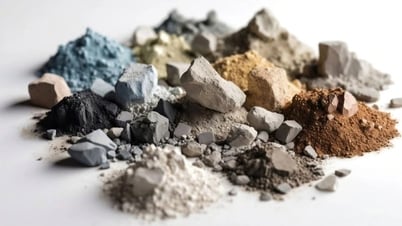


















![[Photo] More than 17,000 candidates participate in the 2025 SPT Competency Assessment Test of Hanoi National University of Education](https://vphoto.vietnam.vn/thumb/1200x675/vietnam/resource/IMAGE/2025/5/17/e538d9a1636c407cbb211b314e6303fd)























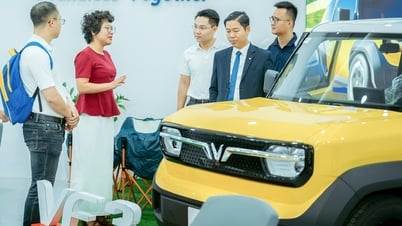


















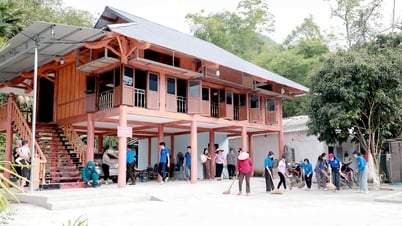



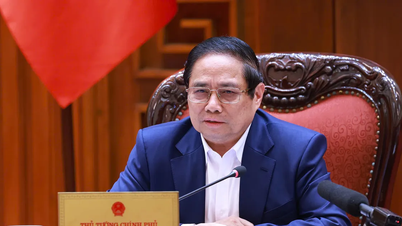
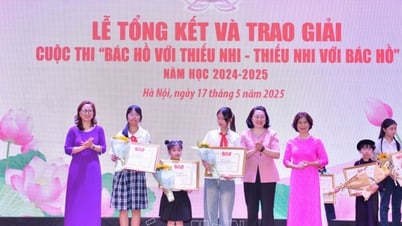

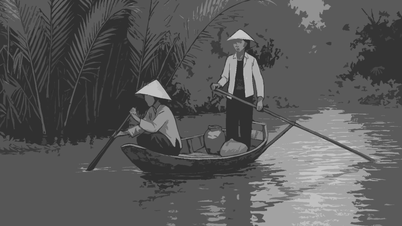










Comment (0)